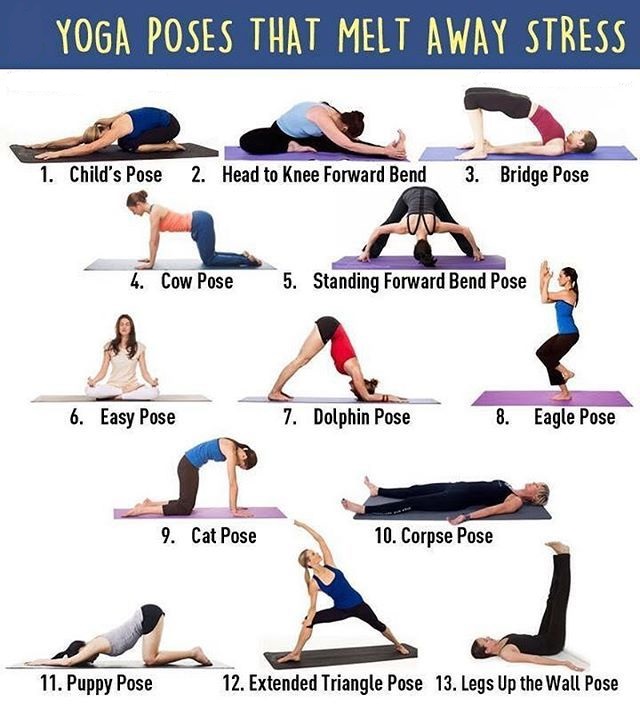Yoga can reduce high blood pressure, bad cholesterol, stress and anxiety, all risk factors for heart disease.

Research suggests that long-term anxiety or emotional stress can increase the risk of sudden cardiac death. To reduce your anxiety level, try activities that reduce stress like yoga, walking meditation, traditional meditation, guided imagery, or other methods. Look for classes in your area. Alcohol, tobacco, and caffeine can increase feelings of anxiety and increase your stress and blood pressure. Cutting back or quitting these substances may help decrease your anxiety and stress. Talk with your provider if you have feelings of depression or anxiety and ask about medicines that can help.
STRESS CAN INCREASE YOUR RISK FOR HEART DISEASE
Stress is a normal part of life. Stress can come from physical causes like not getting enough sleep or having an illness. Another cause for stress can be emotional, worrying about not having enough money, or the death of a loved one. Stress can also come from less dramatic causes like everyday obligations and pressures that make you feel that you are not in control.
Your body’s response to stress is supposed to protect you. But, if it's constant, it can harm you. The hormone cortisol is released in response to stress. Studies suggest that the high levels of cortisol from long-term stress can increase blood cholesterol, triglycerides, blood sugar, and blood pressure. These are common risk factors for heart disease. This stress can also cause changes that promote the buildup of plaque deposits in the arteries.
Even minor stress can trigger heart problems like poor blood flow to the heart muscle. This is a condition in which the heart doesn't get enough blood or oxygen. And, long-term stress can affect how blood clots. This makes the blood stickier and increases the risk of stroke.
In addition, people who have a lot of stress may smoke or choose other unhealthy ways to deal with stress.
Common responses to stress include:
Aches and pains
Decreased energy and sleep
Feelings of anxiety, anger, and depression
Impatience
Forgetfulness
People respond to stressful situations differently. Some react strongly to a situation. Others are relaxed and unconcerned. Luckily, you can decrease the effect of stress on your body. First, identify situations that cause stress. Although difficult, try to control your mental and physical reactions to these stressful situations. Try the following to help manage stress and keep your heart healthy.

GET PLENTY OF EXERCISES
Exercise can help counteract the harmful effects of stress. For heart health, aim for at least 30 to 40 minutes, 4 to 5 days a week. Exercise can help to improve cardiovascular health by controlling weight, improving cholesterol, and lowering blood pressure. Exercise has another benefit that lowers stress. People who exercise have a reduced physical response to stress. Their blood pressure and heart rates don't go up as high as people under stress who don't exercise.
Regular exercise can also reduce the risk of depression, another risk factor for heart disease.
“Yoga is not a work-out it is a work-in, and this is the point of spiritual practice to make us teachable to open up our hearts and focus our awareness so that we can know what we already know and be who we already are.”
ReplyDelete